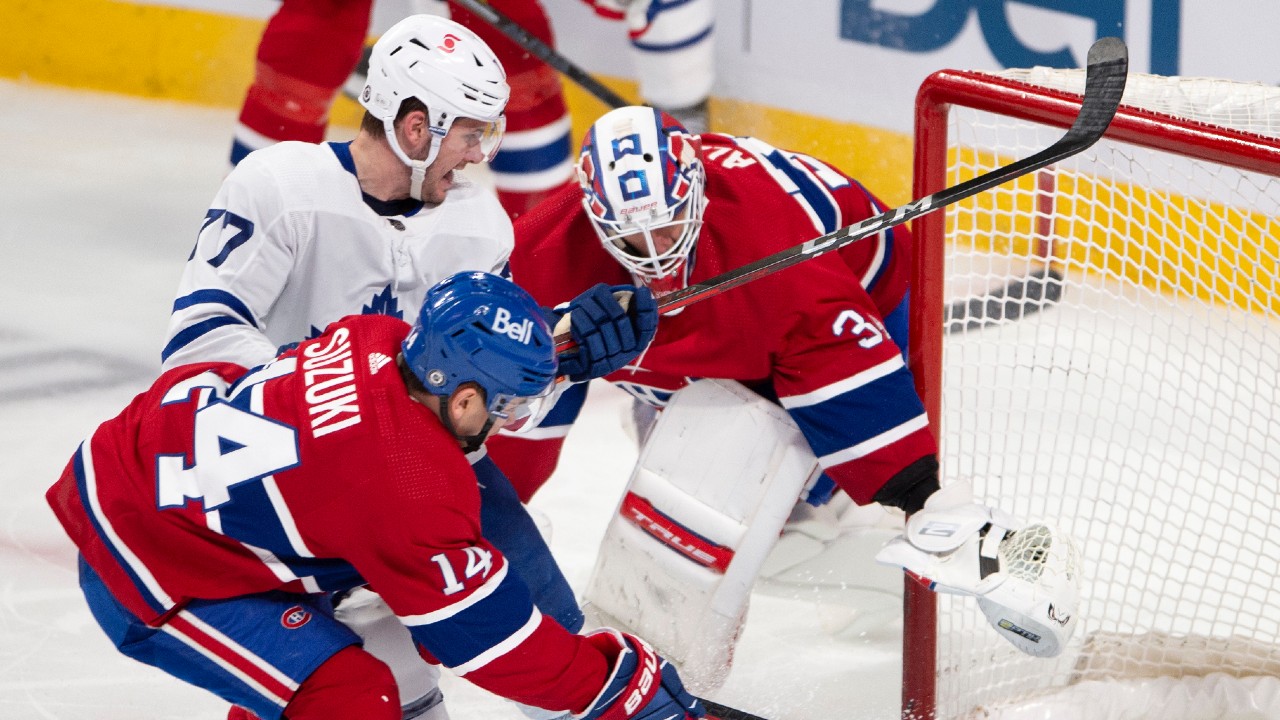
MONTREAL—It’s the question that has to be asked, with eight games left in a schedule Phillip Danault referred to earlier on Wednesday as the biggest grind he’s ever been through. He’s played five 82-game seasons—with missed time due to injury in some of them—but this 56-gamer has taken its toll on his body and mind, and he’s clearly not alone in that.
How much will this regular season take out of him and these Montreal Canadiens?
You look at the roster and say it’s built for playoff hockey, anchored by several hardened veterans like Danault who haven’t had the incentive to burn it playing three games in four nights for weeks on end while a playoff spot has never really been under threat. Canadiens coach Dominique Ducharme said his players haven’t taken anything for granted, but they haven’t found a mode above survival over the last month.
If they don’t find one soon, how will they build the belief they can play their best when it matters most?
As Ducharme said earlier on Wednesday, no one in the professional hockey world has ever faced having to play 25 games in 43 days while traveling across the country and through multiple time zones, and we’re not bringing that up to excuse the way this team has handled all that; we’re merely wondering what the true cost of not handling it all that well will be.
Because losses like the one the Canadiens suffered against the Toronto Maple Leafs at the Bell Centre affect the psyche, and the Canadiens have suffered too many of them of late. This was their ninth since Brendan Gallagher went down to injury 13 games ago—another energy-sapping slog made categorically more difficult by the way they beat themselves—and if they don’t start regularly experiencing something different, what will they have to pull from to convince themselves they can hang with the division-leaders in a seven-game series?
“We’ve got to play a full 60 minutes against those guys,” Nick Suzuki said after scoring the only goal in the playoff berth-clinching 4-1 win for the Maple Leafs. “If we do meet them in the playoffs, a game like that won’t win us any games.”
The problem is, win or lose, that’s the game the Canadiens have brought on most nights since their torrid 7-1-2 start to the season. A game where they “showed glimpses,” as Suzuki put it, but failed to “manage,” as Ducharme said.
The coach says it’s mental, and we agree.
His team knew it was in tough to begin with against the Leafs. It knew that with Gallagher sidelined with a fractured thumb, Carey Price recovering from a concussion, Jonathan Drouin on an indefinite leave of absence for personal reasons and Paul Byron and Tomas Tatar nursing lower-body injuries, this was going to be a monumental challenge—especially after a grueling trip to Alberta that ended with a crucial win over the Calgary Flames and a red-eye flight home on Monday night.
But the Canadiens made it impossible for themselves right off the hop on Wednesday.
Tyler Toffoli hauled down Alex Galchenyuk on the game’s second shift, sending the talented Leafs to the power play on fresh ice.
Sure, Toronto has struggled there of late, but it was able to pull off a perfect passing play to open the scoring on its first shot of the game, 1:38 into the action.
Less than seven minutes later, Auston Matthews made a play few players not named Auston Matthews are capable of and he extended his team’s lead on its second scoring chance.
From there, the Canadiens became unglued despite there being more than 50 minutes left of it to play.
“We tried to force the game early as if it was the end of the third period already and we needed to score two (with) five minutes (left) in the first,” Ducharme said.
It wasn’t some new phenomenon that emerged out of the blue. It’s been a feature of the Canadiens’ game for too long, and it’s something they have to get away from before it’s too late.
“You’ve gotta come out and compete for these next eight games,” said Josh Anderson, whose effort was unimpeachable, with a team-leading six shot attempts and six hits. “We’ve just got to find ways to win. I know some guys are not going to have it every night. You just have to compete, battle together and put it together and good things are going to happen.”
Suzuki said morale has been good all along, despite the inconsistency and all the tough losses. Anderson repeated several times that his belief in the team is as its strong as it’s been since Day 1, and that it’s strong enough for him to say they can beat the Leafs or anyone else.
But the actions need to start following now.
“It’s sticking with your game,” Ducharme said. “It’s not giving gifts to the other team. It’s about managing moments. It’s about many things. Obviously we address all that, but we’ll keep working on things and we won’t give up on that. We’ve got to be stronger, and we’ll do it.”





